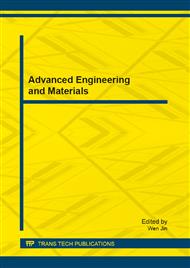p.128
p.136
p.140
p.146
p.151
p.158
p.165
p.170
p.176
Reaction of Magnesium Hydride with Water to Produce Hydrogen
Abstract:
In this paper, magnesium hydride was used to react with water to produce the hydrogen gas. Magnesium hydride is the chemical compound MgH2, which contains 7.66% by weight of hydrogen. Although the concept of reacting chemical hydride with water to produce hydrogen is not new, there have been a number of recent published papers which might be employed to power fuel cell devices for portable applications. Under the room temperature, the hydrolytic reaction between magnesium hydride and water to form a thin-layer of magnesium hydroxide on the outer surface impedes water from coming into direct contact with the magnesium hydride. The key to continual removal of the coherent magnesium hydroxide layer by adding a citric acid has the following conclusions. First, using this approach can reach the 6.4wt% of hydrogen. Finally, the cost of producing hydrogen from magnesium hydride-water hydrogen generation approach would cost approximately $15 per kg hydrogen.
Info:
Periodical:
Pages:
151-157
DOI:
Citation:
Online since:
February 2013
Authors:
Keywords:
Price:
Сopyright:
© 2013 Trans Tech Publications Ltd. All Rights Reserved
Share:
Citation:


